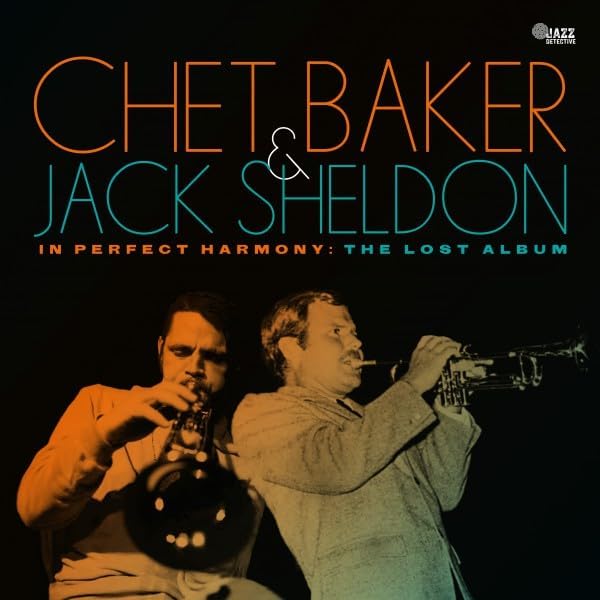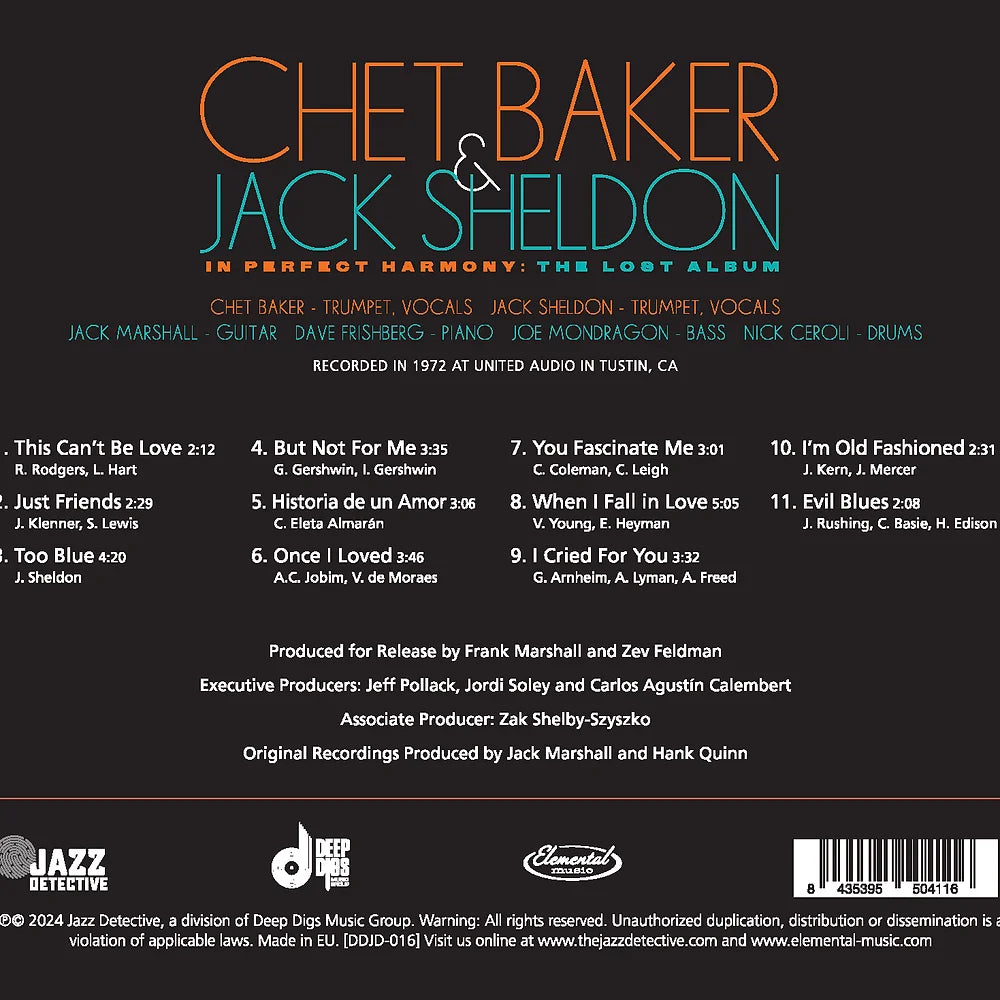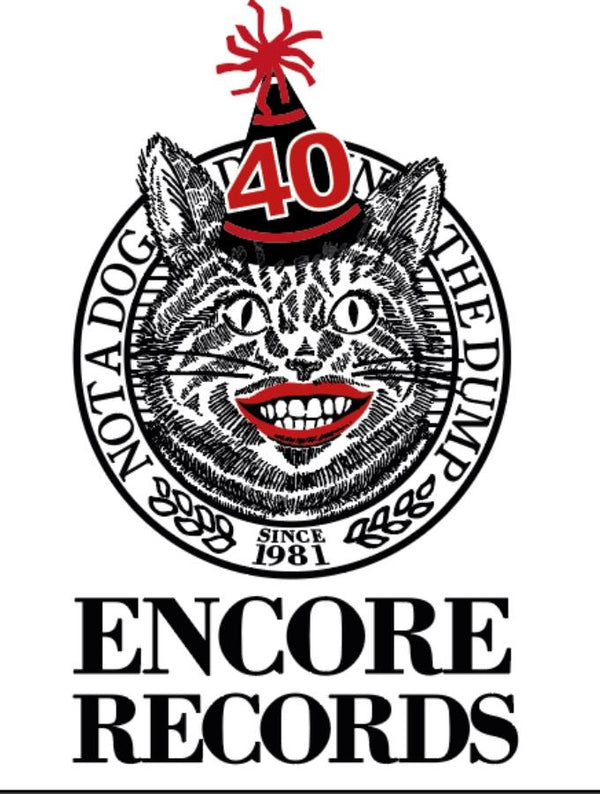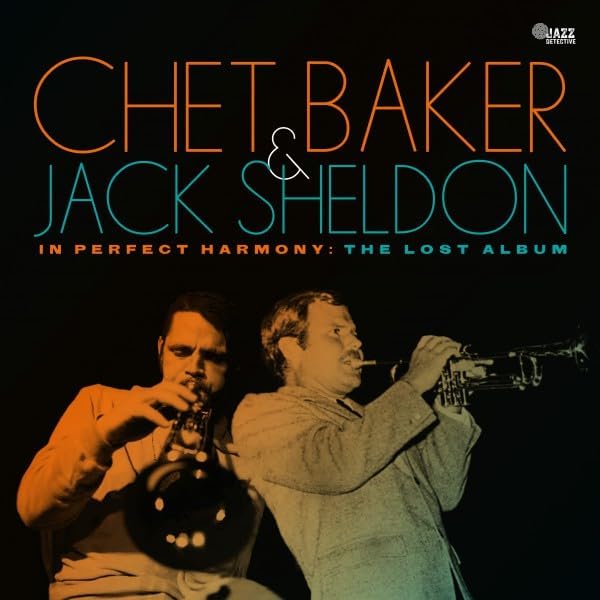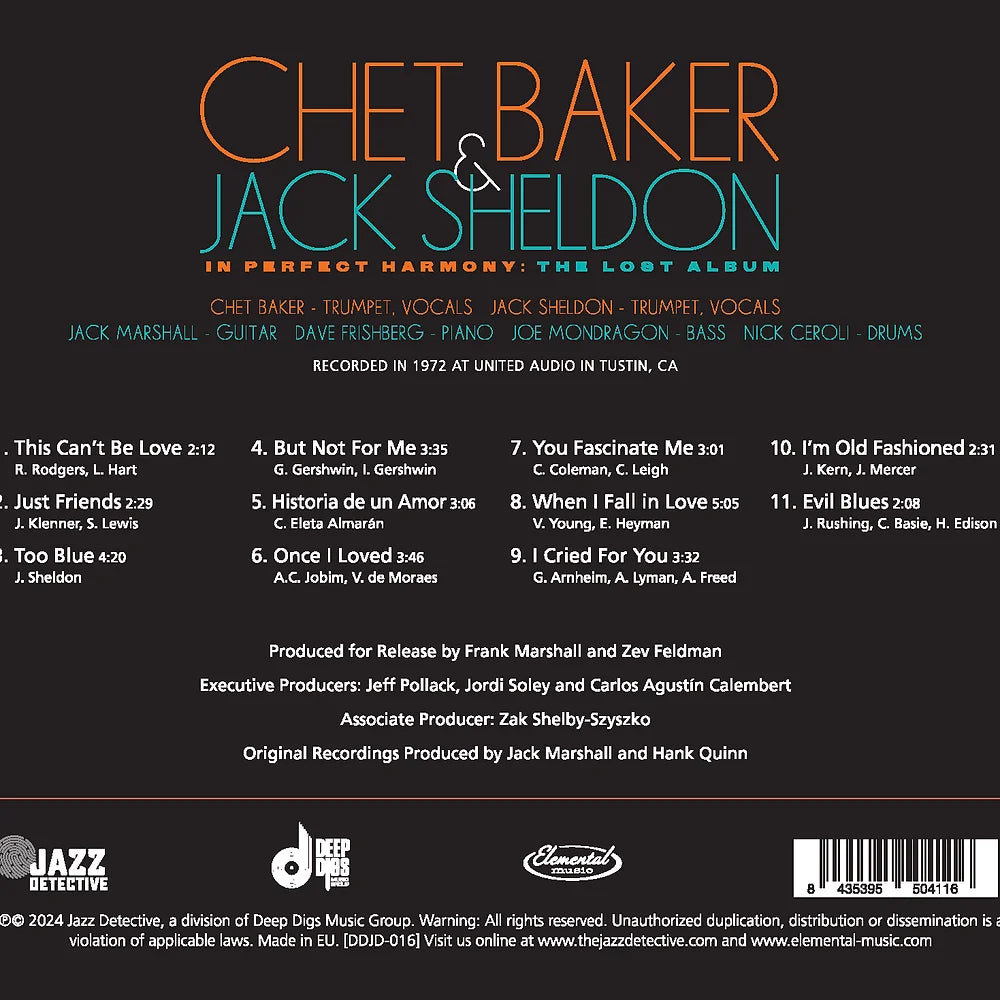Encore Records Ltd
CD - Chet Baker & Jack Sheldon - In Perfect Harmony: The Lost Album
CD - Chet Baker & Jack Sheldon - In Perfect Harmony: The Lost Album
Couldn't load pickup availability
1CD - IMPORT - Limited
Zev Feldman’s Jazz Detective label will present a previously unheard musical treasure on Record Store Day 2024, as the archival imprint releases In Perfect Harmony: The Lost Album, a hitherto unknown 1972 studio recording featuring trumpeters/vocalists Chet Baker and Jack Sheldon.
The sextet date is the third release featuring Baker from award-winning archival producer Feldman, succeeding the previous Live in Paris: The Radio France Recordings (1983-1984) (Elemental Music, 2021) and Blue Room: The 1989 VARA Studio Sessions in Holland (Jazz Detective, 2022). Both titles were issued in partnership with Barcelona-based Jordi Soley and Carlos Agustin Calembert of Elemental Music.
In Perfect Harmony is co-produced by the legendary, hit-making film producer Frank Marshall, who’s glittering resumé includes the Indiana Jones, Jurassic Park, Back to the Future, and Jason Bourne franchises, among many other box office blockbusters. Marshall’s father was jazz guitarist and composer Jack Marshall; he is a featured player on the Baker-Sheldon recordings, which were cut at United Audio, the Tustin, CA, studio facility he operated with partner Hank Quinn, who co-produced the original ’72 date. Veteran music executive and TV/film producer, Jeff Pollack — who's recent credits include The Gift: The Journey of Johnny Cash, Laurel Canyon: A Place in Time, Rhythm + Flow and McCartney: 3,2,1 — is an executive producer on the album.
Besides the leaders and Marshall, the session features three top Los Angeles rhythm players: pianist Dave Frishberg (who later penned some of the witty tunes Sheldon famously sang for ABC’s Saturday-morning children’s programming, Schoolhouse Rock), bassist Joe Mondragon, and drummer Nick Ceroli.
Feldman says, “Co-producing this album with the great film producer Frank Marshall has been one of the biggest thrills of my career to see crystallize and come together….These recordings are simply remarkable, and I’m grateful that we’re able to keep finding gems like this that have been tucked away for so many years.”
In August 2022, Frank Marshall brought the tapes that became In Perfect Harmony to Feldman. Marshall recalls in his notes for the package, “The sessions went well, and, when they finished mixing, Dad took the tapes to L.A. to shop them. He had several record labels interested but, on September 20, 1973, he died suddenly of a heart attack. The tapes got packed away in our garage and were never released. Until now. After 50 years in storage, we can finally enjoy and celebrate this long-lost gem of an album.”
This session was projected as one of the first in years to feature Chet Baker in a leadership role. He had been largely inactive in the studio since suffering a savage assault on the street in the San Francisco Bay area in August 1966. The beating broke several of the musician’s teeth and forced him to be fitted with dentures, which left him uncomfortable and wary of playing. But Sheldon, a close friend and peer of Baker, tried to coax him back to work.
“One day during the summer of 1972,” Frank Marshall recalls, “Jack Sheldon had an idea: ‘Just think, Chetie, if we do an album together, you’ll only have to play on half of it!’ Chet liked the idea, but was still hesitant. To make him comfortable, the two Jacks did what they did best — get great musicians together.”
In his notes devoted to the music, historian Richard S. Ginell writes, “This newly-discovered session comes from a time when Sheldon was riding high on the Merv Griffin show while Baker was struggling, out of the music for a while trying to repair his embouchure. Jazz historians say that Baker’s ‘comeback’ started in 1973, but this session predates that by about a year. Sheldon and Jack Marshall set it up as a way to ease their friend gradually onto the scene again by sharing the date and enlisting first-class help from some of L.A.’s finest resident jazzers.”
Splitting the vocal chores down the middle with five leads apiece, Baker and Sheldon essayed largely standard repertoire (augmented by one Sheldon original and a Mexican ballad he performed in Spanish) in relaxed style. A lone instrumental, the bossa nova “Once I Loved,” rounds out the album.
The approaches of the chill, laid-back Baker and the exuberant, ebullient Sheldon were a study in contrast. Ginell says, “Sheldon had a bright, brash sound rooted in the bebop gospel according to Dizzy Gillespie. Baker, by contrast, was a cooler customer, more in the Miles Davis manner, and as such became a poster boy for what was labeled West Coast Jazz, a label that was plastered rightly or wrongly on anyone who came from California. They differed even more as singer — Sheldon ever the lively hipster who sometimes seemed to be kidding the lyrics in the Great American Songbook; Baker ever the callow, blood, subtly swinging presence who always sounded as if he was barely out of his teens.”
Happily, after half a century on the shelf, the tapes were in good shape, and engineer Lutthans writes, “In December 2023, I had the pleasure of threading up the tape on the late Doug Sax’s customized, all-tube-electronics tape machine feeding the tube amplified Neumann lathe, hitting play, and cutting the masters 100% all analog. Enjoy!”
Share
